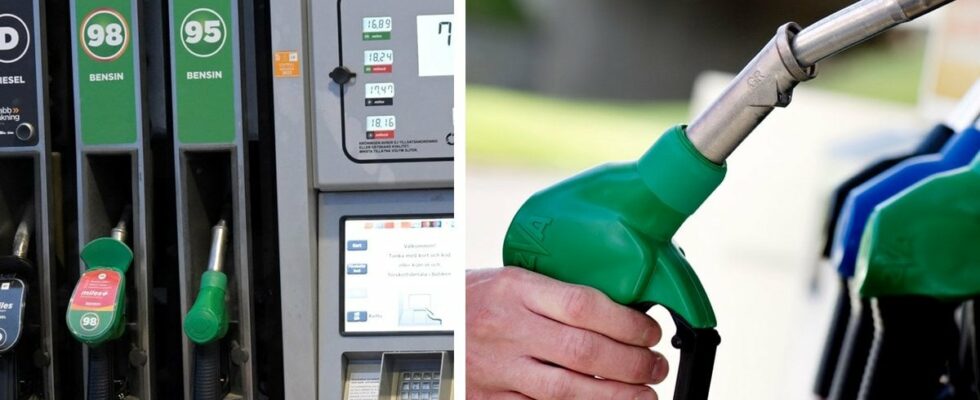For those who drive a petrol car, there are usually two fuel options to choose from when you roll into the supermarket to refuel.
You can either choose the cheaper 95-octane petrol, or the more expensive 98-octane variant.
Here we explain the differences between petrol with 95 and 98 octane, when to choose which fuel, and whether it is worth paying for the more expensive option.
Read more: That’s how much more expensive petrol has become – in 10 years
What does octane mean in gasoline?
We start by finding out what octane actually is.
Gasoline’s octane number tells about the fuel’s ability to resist knocking, which is when the fuel self-ignites at the wrong time inside the engine.
Over the years, there have been many theories that 98-octane petrol gives the car more power, lower fuel consumption and is better for the engine.
In an old car you should fill up with 98 octane – Photo: Marcus Berggren95 or 98 octane – which petrol should you choose?
In the vast majority of cases, there is no point in filling anything but 95 octane gas in a modern car.
A car designed to run on 95 octane will not be able to benefit from a higher octane number than that, and thus will not get more power if you fill it with 98 octane.
In most cases, you will also not experience any noticeable difference in fuel consumption, and therefore paying extra for 98-octane gasoline is usually objectionable.
Which fuel your car is designed for is usually written on the inside of the fuel cap.
Read more: Do you have to wear a helmet when cycling? Then you can be fined
Then you should choose 98 octane
However, many higher performance cars are adapted to primarily run on 98-octane petrol.
A modern car designed to run on 98 octane can also run on 95 octane petrol without risk of engine damage.
However, the engine control system will adjust the ignition to avoid knocking problems, and this can lead to reduced power and increased fuel consumption.
Read more: Do cyclists have priority at pedestrian crossings? That’s what the law says
Fill your vintage car with 98 octane
If you have a vintage car, however, the 98-octane fuel may actually be better for the car, but not primarily because of the higher octane rating.
Instead, it is about the fact that the 95-octane petrol sold today is rated E10, while the 98-octane petrol is rated E5.
This means that the two fuels contain 10 and 5 percent ethanol, respectively, to which some components in the fuel system of older cars can be sensitive.
If you have a vintage car, it may therefore make sense to choose petrol with 98 octane. The same applies to other engines with carburetors, for example outboard engines.
Read more: BMW and Toyota collaborate – for alternatives to electric cars
